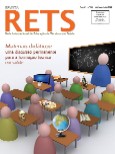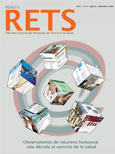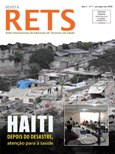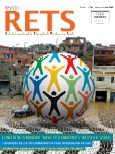RETS Magazine nº11

In issue No. 40 of the of RETSUS Magazine (http://www.retsus.epsjv.fiocruz.br), Brazilian experts in the training of health technicians pointed out the countless difficulties that the country still faces in the production of textbooks for the training for these workers. In May this year, a seminar organized by the School of Health Technology of Lisbon (ESTeSL) under the technical coordination of the Joaquim Venâncio Health Polytechnic School (EPSJV) brought together representatives of institutions from Angola, Cape Verde, Mozambique, São Tomé and Principe, Portugal and Brazil and showed that the situation is not very encouraging in other countries. According to the assessment of the event, held under the RETS-CPLP, there are practically no textbooks that fully meet the needs of teachers in their educational process.
These are just two of many other clues that point to the need to reflect on some important issues related to the production, selection, assessment and use of textbooks in the education of the huge number of technical health workers. Thus, with this purpose in mind, we begin a short series of articles on the subject in this magazine, also bringing the story of a successful experience held by the National Directorate of Human Capital and Occupational Health of the Ministry of Health of the Nation of Argentina in preparing textbooks to support a training project designed to empower community workers in Environment and Health.
Moreover, this issue features the results of the Global Meeting of the Observatories of Human Resources for Health attended by representatives from 38 countries in six regions of the world, also including an interview with one of the foremost authorities on the subject - Ecuadorian Mónica Padilla Diaz, of the Pan American Health Organization (PAHO/WHO) - and an account of Betsy Moscoso, from the Ministry of Health of Peru, on the construction of the Peruvian observatory of HRH, one of the highlights of the meeting along with Brazil.
In addition, among other things, you will be able to be acquainted with the three latest institutions to join the RETS – the Higher School of Public Health of Chaco’s Province, from Argentina; Medised from Colombia; and the Global Community Health Training Center (GCHTC) of Jackson State University, United States – and understand the creation and operation of the South American Institute of Health Governance (ISAGS), which has the RETS-UNASUR in its Advisory Board.
Happy reading!
RETS Executive Secretariat
Ano:
- 2011



